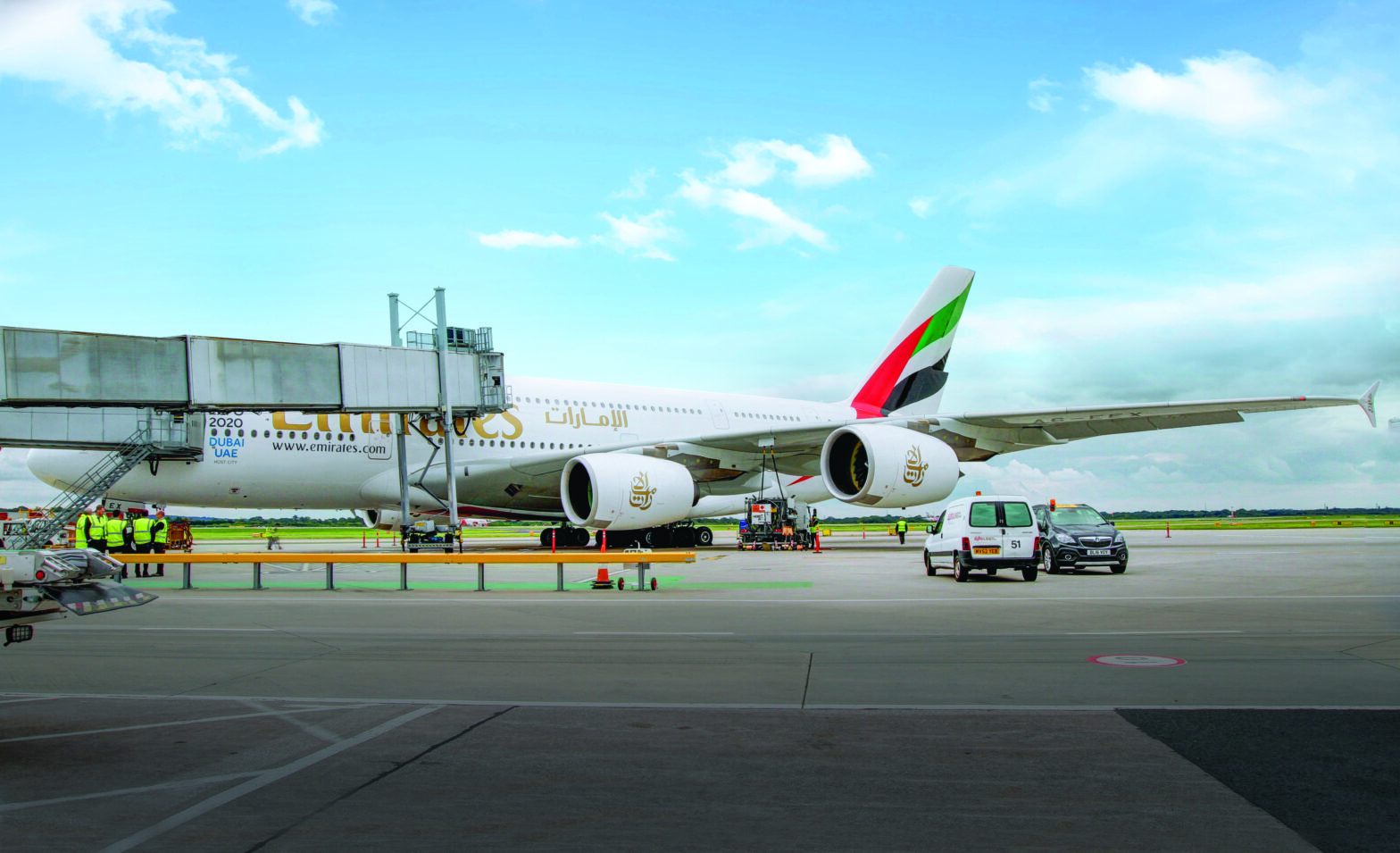- £2.5 million Government funding to develop one of the largest advanced SAF production facilities in the UK, based at Essar Energy Transition’s Stanlow energy hub
- The production facility plans to use methanol-to-jet technology to convert renewable e-methanol and bio-methanol into SAF
- Stanlow Terminals’ import infrastructure at Tranmere and Stanlow enables access to competitive, low carbon intensity methanol feedstocks
- SAF will be blended on-site with EET Fuels’ existing jet fuel production to directly supply the UK aviation industry
Stanlow, UK, 22 July 2025 – Essar Energy Transition (EET), which plans to create the world’s leading low carbon process refinery, has been awarded £2.5 million from the UK Government’s Department for Transport (DfT), as part of its Advanced Fuels Fund (AFF) scheme, to develop one of the UK’s largest advanced Sustainable Aviation Fuel (SAF) production hubs.
The planned Methanol-to-Jet (MtJ) facility will produce up to 200,000 tonnes per annum (tpa) of advanced SAF, using approximately 550,000tpa of renewable e-methanol and bio-methanol, sourced both domestically and internationally – including from Essar Future Energies’ e-methanol project in Gujarat, India.
The project benefits from its location at the Stanlow energy hub, where Stanlow Terminals Ltd (STL) — a key infrastructure partner to EET Fuels—provides critical import and storage capabilities. This enables access to the most competitive and low carbon intensity methanol feedstocks. The existing STL facilities at Tranmere and Stanlow will be fundamental to the success of this project by enabling the large quantities of renewable methanol feedstocks to be efficiently delivered to the project. In support of this project, STL will evaluate and confirm the existing terminal infrastructure upgrades and expansion required to support large scale renewable methanol imports and SAF storage.
The integration with EET Fuels’ existing jet fuel production will also allow for on-site blending of SAF, creating a direct supply route to the UK aviation sector.
Mike Gaynon, Stanlow Terminals Ltd, said:
“This project is a strong reflection of Stanlow Terminals’ ambition to be at the forefront of the UK’s energy transition. We are proud to be working alongside our partners to deliver the critical infrastructure needed to support large-scale renewable methanol imports and SAF production. We already import, store, and blend biomethanol on site and are excited to expand upon this, as well as furthering our SAF storage already under development, to support this project. This long-term collaboration reinforces our role in enabling the shift to low-carbon fuels and building a more sustainable future.”
The MtJ hub will also leverage EET’s broader decarbonisation ecosystem, including low-carbon power, hydrogen, and carbon capture infrastructure, positioning Stanlow as a central player in the UK’s energy transition. The SAF produced will be distributed via EET’s established jet fuel infrastructure, including the Manchester Jet, Midlands, and UKOP pipeline systems, supplying 10 UK airports including Manchester International Airport.
Tony Fountain, Managing Director at EET, said:
“We welcome the UK Government’s support, which enables us to carry out a detailed pre-front-end engineering design process and accelerate this flagship UK advanced sustainable aviation fuels project towards final investment decision. At Stanlow, we have major decarbonisation ambitions, aiming to become a leading energy transition hub and home to the world’s first low-carbon process refinery.”
Manchester Airport Managing Director, Chris Woodroofe, said:
“The widespread availability of Sustainable Aviation Fuel (SAF) sits at the heart of plans to decarbonise aviation in the UK by 2050, which is why it is pleasing to see the Government drive forward initiatives that support its production across the UK. This funding will mean airlines using Manchester Airport will have direct access to SAF via the existing pipeline to the Stanlow fuel plant. I am proud to see the North West playing a leading role in the creation of a domestic SAF industry that will support aviation decarbonisation whilst also creating thousands of new green jobs. Alongside the introduction of the SAF Mandate and Parliament’s support for a Revenue Certainty Mechanism, this is an important step towards aviation becoming net zero by 2050.”
The development of a SAF production hub represents a significant commercial opportunity for Essar Energy Transition. The UK’s SAF Mandate, effective from January 1, 2025, sets progressive targets for aviation fuel suppliers to incorporate SAF into jet fuel for flights departing from the UK.
The targets are designed to support the UK’s Jet Zero Strategy to achieve net-zero aviation emissions by 2050. By 2040, 22% of total jet fuel demand must be SAF, up from 2% today. The proposed MtJ facility will enable EET Fuels to meet their own advanced SAF obligations under the UK SAF Mandate by 2035.
The funding for Stanlow’s MtJ project comes from the AFF third window launched by the DfT in February 2025, which has allocated £63m to support advanced SAF projects between July 2025 and March 2026, helping them reach key development and commercial milestones. Further support is anticipated from the AFF beyond March 2026 and, combined with the UK Government introducing legislative measures to implement a revenue certainty mechanism to support SAF production in the UK, this will enable UK advanced SAF market projects to reach FID and start-up.
